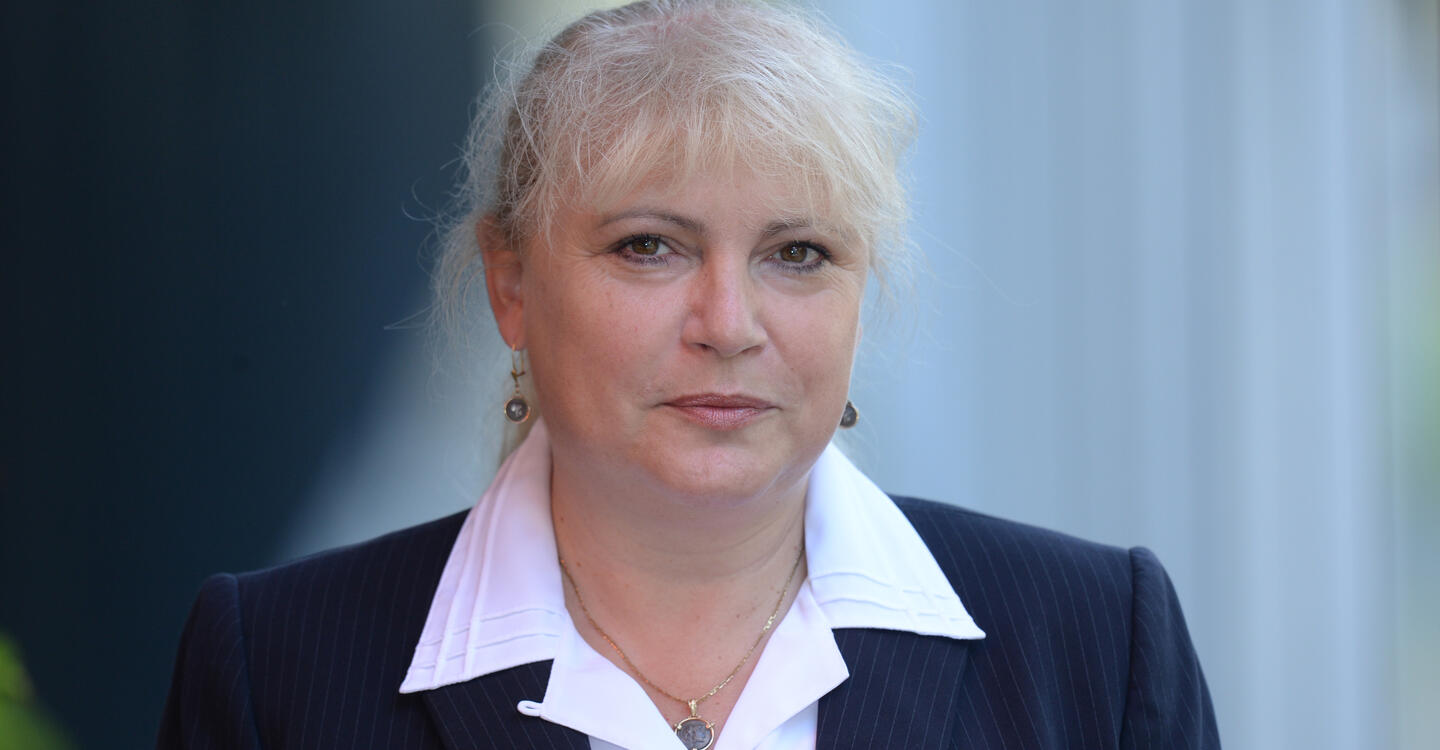
News
Cancer researcher Ulrike Stein receives high honor
16.11.2022 / Ulrike Stein is searching for molecules that play a key role in metastasis, aiming to use them as therapeutic targets for solid tumors and to improve cancer prognosis. The Metastasis Research Society has recognized her work with this year’s Women in Science Achievement Award.

Cancer patients rarely die from the primary tumor, but rather from the metastases that form when tumor cells spread to other sites in the body. How the cells achieve this is not fully understood. Uncovering the molecular mechanisms of metastasis in order to identify new targets for cancer therapies is the goal that drives Professor Ulrike Stein. She leads the Translational Oncology of Solid Tumors Lab at the Experimental and Clinical Research Center (ECRC), a joint institution of the Max Delbrück Center and Charité – Universitätsmedizin Berlin. The renowned Metastasis Research Society has recognized Stein with this year’s Women in Science Achievement Award for her exceptional contributions to this field. The award ceremony is held in Buenos Aires on November 16. She is the second cancer researcher to receive this award since its inception in 2020.
Just over ten years ago, Stein made her most important discovery: Together with Professor Peter M. Schlag of Charité’s Comprehensive Cancer Center (CCCC) and Professor Walter Birchmeier of the Max Delbrück Center, she identified the metastasis-associated in colon cancer 1 (MACC1) gene, which was completely unknown at the time. When cancer cells express MACC1, their ability to proliferate, move around the body, and invade other tissues is enhanced. MACC1’s role as a key factor and biomarker of tumor growth and metastasis – not only in colorectal cancer, but in more than 20 solid tumors such as gastric, liver and breast cancer – has since been studied by many other researchers worldwide and confirmed in more than 300 publications.
A child of the GDR
Stein grew up in the town of Naumburg in Saxony-Anhalt. She knew as early as seventh grade that she wanted to be a cancer researcher. But despite her determination, it was a rocky road to get there. After finishing her Abitur, she applied for one of five study places in the GDR for genetics. As she had a perfect 1.0 grade point average, she didn’t think there would be a problem but was rejected.
She was instead offered a spot to study biochemistry at Martin Luther University in Halle. She grudgingly accepted – and was surprised to discover when she began her studies that they centered on the biochemistry of plants. She stuck with it anyway, and in the last leg of her studies she managed to veer toward cancer research, completing her thesis at the Central Institute for Cancer Research of the GDR Academy of Sciences, one of the three institutes from which the Max Delbrück Center later emerged.
She also enrolled at the Academy of Sciences for her doctorate. But shortly after the fall of the Wall in November 1989, when she was ready to submit the required 16 copies of her dissertation, she learned the Academy had lost the right to award doctorates. It wasn’t until a year later, after German reunification, that she was able to receive her doctorate from Humboldt University in Berlin. “After reunification, I was the very first scientist to defend her doctoral dissertation at Humboldt University,” Stein recalls. She then spent three years as a postdoc at the Max Delbrück Center before moving with her husband in 1994 to the National Cancer INstitute (NCI) in Maryland, USA, where she investigated how cancer cells become resistant to chemotherapy drugs.
Doing research in the US was like heaven
If she and her husband hadn’t noticed that their son was beginning to have problems with the German language, “I never would have returned to Germany,” she says. She was especially taken by the technical and financial resources of the institute and by the collaboration among colleagues. “I thought I was in heaven,” she enthuses even today. After her return she became a research group leader, first at the Max Delbrück Center and then at Charité’s former Robert Rössle Clinic. In 2003 she qualified as a professor at Charité, and since 2007 has led her own lab at the ECRC. But she kept up her ties with the United States. For about 15 years, she and her husband spent their summer vacations at the NCI in Frederick, Maryland, where she continued doing research with her old colleagues through an alumni program of the Alexander von Humboldt Foundation. As Stein’s lab at the ECRC grew, though, she eventually had no time for that anymore.
What excites her about cancer research is the intellectual challenge, Stein says, “to be able to make a difference and help people with my own ideas.” She is always looking for genuinely novel topics. “If other scientists are already working on something, there’s no need for my lab to pursue that too,” she explains. This search for uncharted territory led her to metastasis research, an area she feels is somewhat neglected.
“I always wanted to do cancer research”
Stein and her team are currently looking for inhibitors of MACC1. Together with Dr. Robert Preißner of Charité, she has discovered that statins, which are prescribed as cholesterol-lowering drugs, can inhibit MACC1 expression in tumor cells. After experimental studies in cell lines and mouse models and a retrospective data analysis of human samples, a clinical trial is now planned. She says a great deal of patience and perseverance is required to translate basic research findings into clinical practice.
She has never run out of either. Neither then, when studying plant biochemistry, nor now, when writing research proposals or journal papers. When she needs some time off from work, she goes with her husband to their thatched cottage on the Baltic Sea, taking a good book or some scientific literature with her. She comes back with countless new ideas. “I always wanted to do cancer research,” she says with conviction. “I would never give that up.”
The Women in Science Achievement Award is the latest of many honors bestowed on Stein. These include the 2010 Prize of the Berlin-Brandenburg Academy of Sciences and Humanities, donated by the Monika Kutzner Foundation for the Advancement of Cancer Research, for the discovery of MACC1; and the 2014 Felix Burda Award in the category “Best Prevention Idea” for research on colorectal cancer, which she received together with Professor Ulrich Rohr of Hoffmann-La Roche and Professor Peter M. Schlag. For the latter award, Stein and her collaborators had developed a blood test for early cancer detection, based on the MACC1 gene. With the blood test, it is possible, at a very early stage of colorectal cancer to identify patients who are at high risk of developing life-threatening metastases. Stein is pleased that her work is being recognized in this way. “But what I really want,” she says, “is to bring these MACC1 inhibitors and diagnostics into clinical use. I am convinced that these would lengthen patients’ lives.”
Text: Jana Ehrhardt-Joswig
Source: Press Release Max Delbrück Center
Cancer researcher Ulrike Stein receives high honor